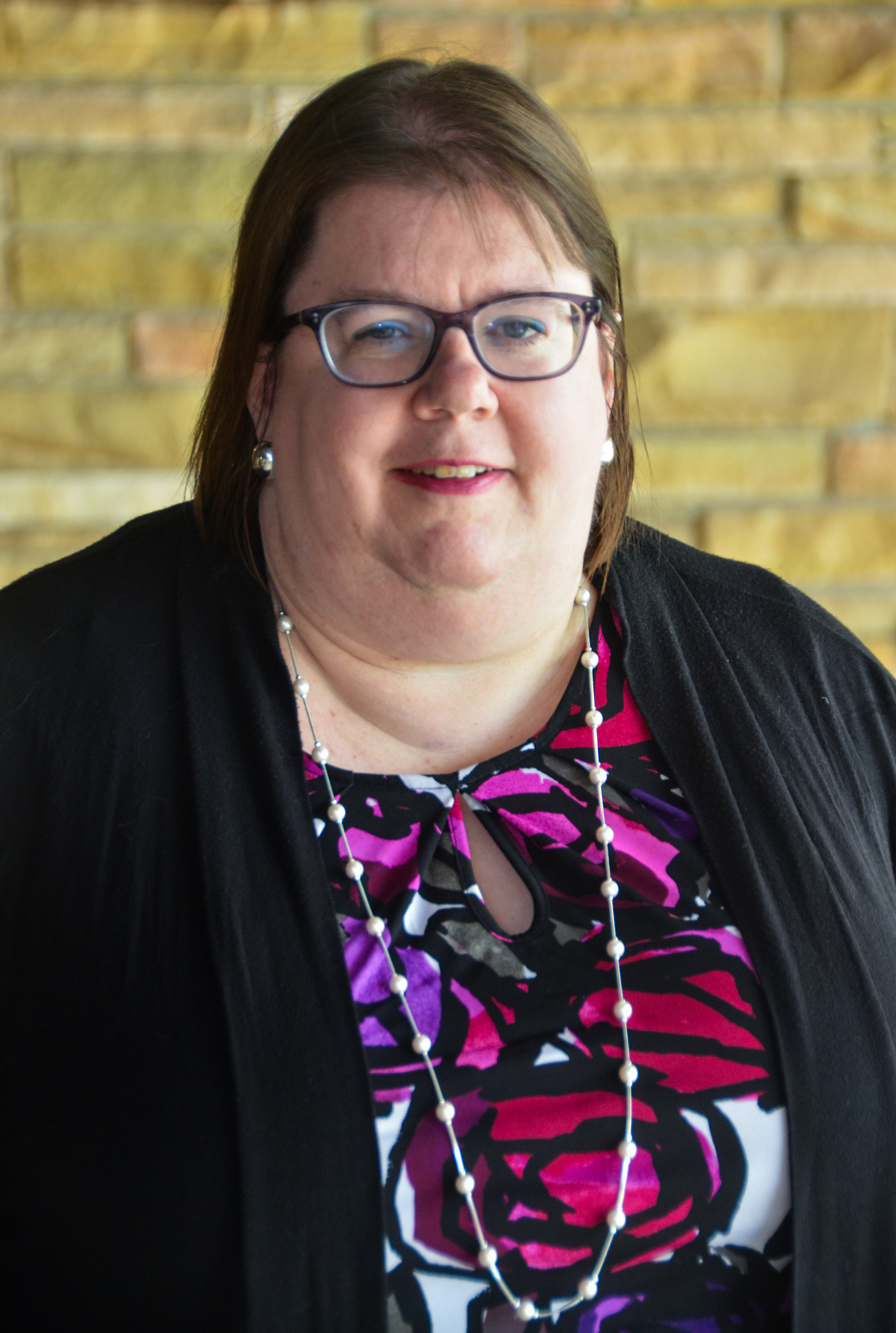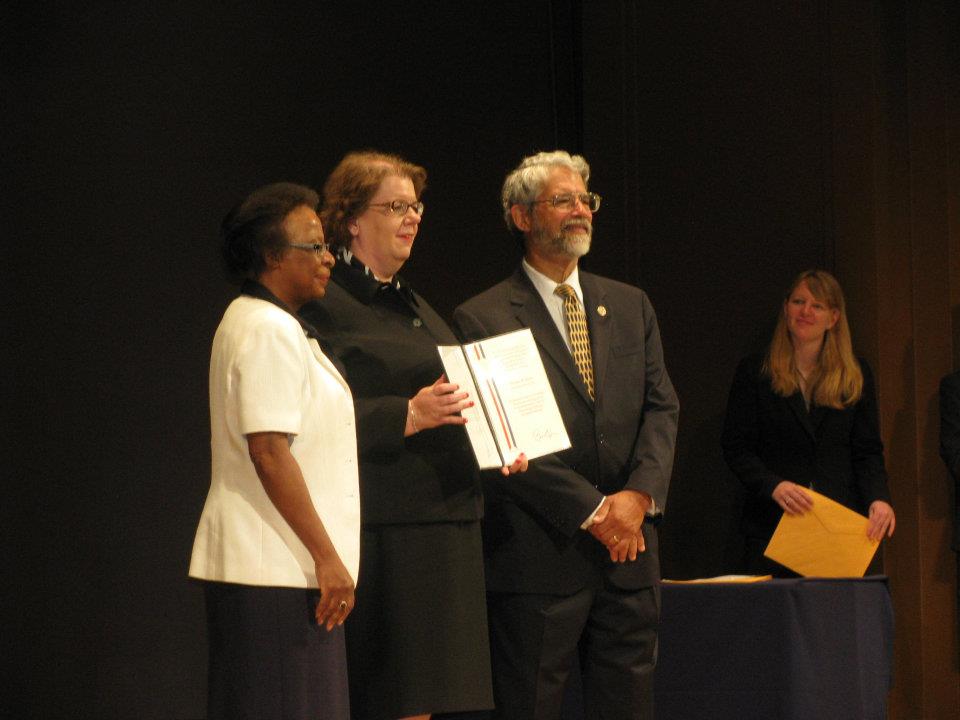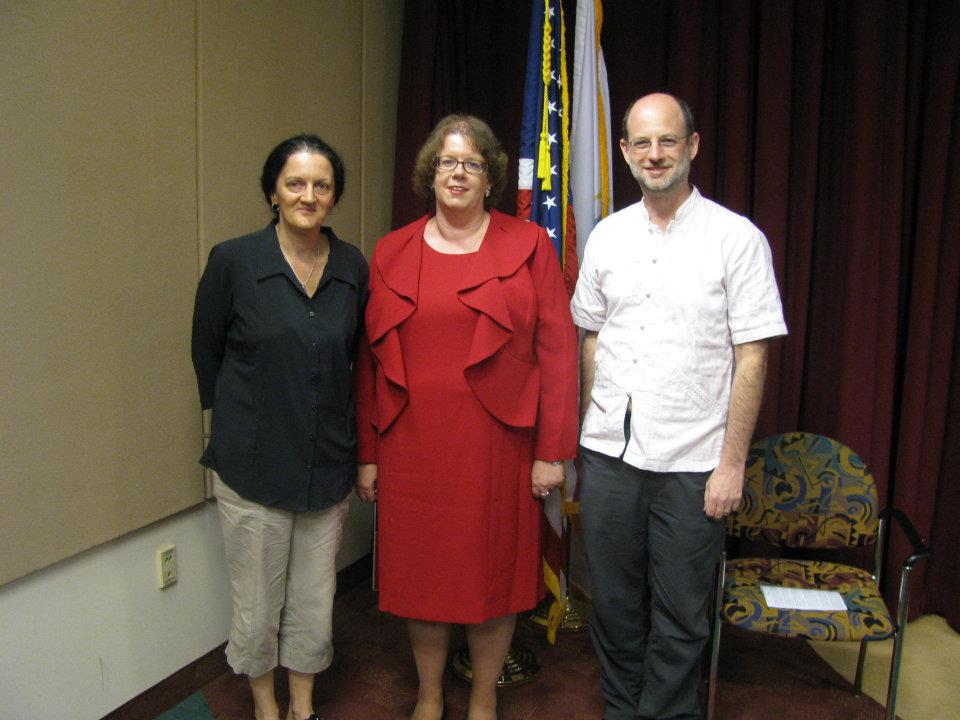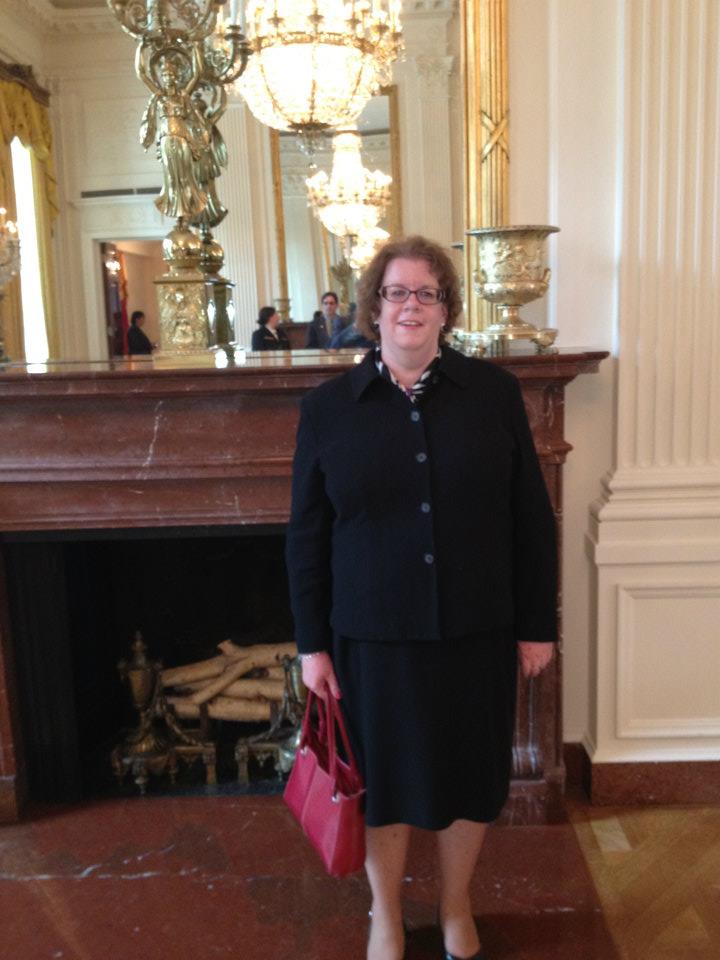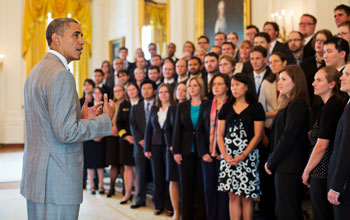|
Contact information:
Engineering Administration
The University of Kansas
1520 West 15th Street
1 Eaton Hall
Lawrence, KS 66045
Administrative Office: 1C Eaton Hall
EECS Faculty Office: 3016 Eaton Hall
I2S Researcher Office: 203 Nichols Hall
E-mail address: shontz@ku.edu
Phone: 785-864-8816
Curriculum Vitae: [PDF] (Updated on 4/8/25.)
|
Biography
Suzanne Shontz received her Ph.D. in applied mathematics from Cornell
University in 2005. She received her B.A.
in mathematics and B.S. in chemistry from the University of Northern Iowa in
1999 and her M.S. degrees in
computer science and applied mathematics from Cornell University in 2002.
Prior to joining The University of Kansas in August 2014, she was
on the faculty at Mississippi State and The
Pennsylvania State University. Previously, Dr. Shontz was a
postdoctoral associate in the Department of Computer Science and
Engineering and a Minnesota
Supercomputing Institute Research Scholar at the University of Minnesota.
Professor Shontz is the recipient of a 2011 NSF Presidential
Early CAREER Award (NSF PECASE Award) from the White House for her 2010 NSF CAREER Project on
parallel dynamic meshing algorithms, theory, and software for simulation-assisted
medical interventions. NSF recently featured Prof. Shontz's research in this video.
The citation for Dr. Shontz's NSF PECASE Award is as follows:
Suzanne M, Shontz of Pennsylvania State University "For exemplary research in computational and
data-enabled
science and engineering that bridges applied mathematics, computer science, and scientific applications, and for
contributions to education, including new curricula and approaches that encourage diversity in this emerging
field."
Photos from the PECASE Ceremonies. Top row, left to right: Dr. Shontz receiving her NSF PECASE Award;
Dr. Shontz with NSF OCI CAREER Program Director, Gabrielle Allen, and Future NSF OCI CAREER Program Director, Daniel
Katz; Dr. Shontz on the White House steps after meeting with President Obama and the 95 other PECASE
Awardees. Bottom row: President Barack Obama addresses 2011 Presidential Early Career Awards for Scientists and
Engineers (PECASE) recipients in the East Room of the White House, July 31, 2012. (Official White House Photo by
Pete Souza).
Prof. Shontz received the International Meshing Roundtable Fellow Award in 2021; the award recognizes an individual
with a distinguished record of research accomplishments in the field of Mesh Generation and exceptional service
to the meshing community. The same year, she received the School of Engineering Miller Professional Award for
Service from the University of Kansas. In 2017, she received the Young Alumnus Award from the University of Northern Iowa in 2017; the award recognizes alumni who have demonstrated success early in their career (age 40 and under) and who has been active in the life of the university.
In 2016, she received the Miller Scholar Award at the University of Kansas; the award is for for research excellence, including a DURIP award for high-performance computing and visualization instrumentation. She received a Big 12 Faculty Fellowship in 2015 which enabled her to collaborate with faculty at Iowa State University on a computational materials science project. In 2012, Prof. Shontz was selected as the December
2012/January 2013 College of Arts and Sciences
Researcher of the Month at Mississippi State University.
In 2009, she received an Office of Naval Research Summer Faculty Fellowship for her
research in computational materials science. In 2007, she was selected as the Computer Engineering Faculty
Marshall for the Spring Commencement exercises at Penn State. Prof. Shontz received a National Physical Science Consortium Fellowship
from 1999-2004 and an Honorable Mention for the Alice T. Schafer Prize for Women in
Mathematics in 1999.
Prof. Shontz has presented her research at several international and national venues. Selected recent presentations include plenary talks at the 2023 International Conference on Adaptive Modeling and Simulation in Gothenburg, Sweden; the 2021 International Meshing Roundtable, a virtual event, and the 2018 International Symposium on Isogeometric Analysis and Mesh Generation in Dalian, China. She has also given invited presentations on her research at the University of California - Santa Barbara, Texas Tech University, the Politecnico di Milano (Italy), the Scuola Internazionale Superiore di Studi Avanzati (Italy), the Universidade da Coruna (Spain), and the Universita della Svizzera italiana (Switzerland).
Research
Professor Shontz's research interests lie in the area of parallel scientific computing. In particular, her research focuses on the development of unstructured meshing and numerical optimization algorithms and their applications to computational medicine, imaging sciences, materials, radar, acoustics, and electronic circuits, among others.
Recent projects have included the design of efficient algorithms for high-order mesh generation,
parallel meshing, dynamic mesh generation, mesh optimization, mesh untangling, and mesh adaptation
for applications ranging from medical devices to elasticity to solid mechanics. Other recent projects
have involved the development of optimization algorithms for effective generation of computational meshes
and model order reduction techniques to reduce electronic circuit networks
for use in circuit simulations.
Click here for results of my NSF CDS&E project (2018-2021).
Click here for results of my NSF CISE project (2017-2021).
Click here for results of my NSF CAREER project (2011-2017).
Click here for recent publications.
Research Group and Collaborators
Moein Moradi (Ph.D. Student, Mechanical Engineering, The University of Kansas; Co-advised with Lisa Friis)
Christina Hymer (Ph.D. Student, Bioengineering, The University of Kansas)
Lily Gray (Ph.D. Student, Computer Science, The University of Kansas)
Lexi Simar (Ph.D. Student, Bioengineering, The University of Kansas; co-advised with Eduardo Rosa-Molinar)
Mikala Heon (Ph.D. Student, Bioengineering, The University of Kansas; co-advised with Eduardo Rosa-Molinar)
Abir Haque (B.S. Student, Computer Science, The University of Kansas)
Suhaan Syed (B.S. Student, Computer Science and Mathematics, The University of Kansas)
Taylor Slade (B.S. Student, Interdisciplinary Computing with Biology, The University of Kansas)
Malek Kchaou (B.S. Student, Computer Science, The University of Kansas)
Leo Cabezas Amigo (B.S. Student, Computer Engineering, The University of Kansas)
Zhihui Qi (Visiting Ph.D. Student, Computer Science, Dalian University of Technology, China)
Alumni
Dr. Sayaka Akioka (Visiting Scholar, Full Professor, Meiji University, Tokyo, Japan)
Dr. Aruquia Barbosa Matos Peixoto (Visiting Faculty from Centro Federal de Educacao Tecnologica Celso Suckow da Fonseca (CEFET/RJ), Brazil;
Information and Telecommunication Technology Center, The University of Kansas)
Dr. Maurin Alberto Lopez Varilla (Postdoctoral Researcher, Information and Telecommunication Technology Center, The University of Kansas;
September 2015-December 2016)
Fariba Mohammadi (Ph.D. in Mechanical Engineering, The University of Kansas; August 2022; Co-advised with Ken Fischer; First position: Postdoc at the University of Michigan)
Michael Stees (Ph.D. in Computer Science, The University of Kansas; May 2020; First position: Postdoc at Los Alamos National Laboratory)
Thap Panitanarak (Ph.D. in Computer Science and Engineering, The Pennsylvania State University; August 2017. Co-advised with Kamesh Madduri.)
Jibum Kim (Ph.D. in Computer
Science and Engineering, The Pennsylvania State University; December 2012; First position: Postdoc at Los
Alamos National Laboratory)
Shankar Prasad Sastry
(Ph.D. in Computer Science and Engineering, The Pennsylvania State University; August
2012; First position: Postdoc at the Scientific Computing and Imaging Institute at
the University of Utah)
Brian Wentz (M.S. in Bioengineering, The University of Kansas; May 2021.)
Kenneth Czuprynski (Co-advised with John Fahnline (ARL); M.S. in Computer
Science and Engineering, The Pennsylvania State University; May 2012; First position: Ph.D. student in Applied
Mathematics at the
University of Iowa)
Dragos Mihai ("Mike") Nistor (M.S. in Computer Science and Engineering, B.S.
Honors in Computer Science and Statistics, The Pennsylvania State University; May 2012; First position:
Mathworks)
Gabriella (Gabi) Kruger (B.S. in Interdisciplinary Computing with Biology, The University of Kansas; May 2024. First position: Analytical Associate Scientist, MilliporeSigma)
Isaac Lee (B.S. in Computer Science, The University of Kansas; May 2024.)
Henry Williams (B.S. in Computer Science, The University of Kansas; May 2022. First position: Software developer at Tradebot.)
Rodrigo Figueroa Justiniano (B.S. Student, Computer Science and Mathematics, The University of Kansas)
Zachary Misic (B.S. Student, Interdisciplinary Computing - Biology, The University of Kansas).
Myra Dotzel (B.S. Student, Computer Science and Mathematics, Minor: Visual Arts, The University of Kansas; May 2021. First position: Ph.D. student in Computer Science at Carnegie Mellon University.)
Xinyun (Melody) Yu (B.S. in Computer Science and Mathematics, The University of Kansas; May 2020; First position: M.S./Ph.D. student in Mathematics at The University of Kansas)
Megana Chinalachaigari (B.S. in Computer Science, The University of Kansas; May 2020)
Omar Alzubbi (B.S. Student, Neurobiology and Interdisciplinary Computing, The University of Kansas;
First position: B.S. student in Interdisciplinary Computing at University of Kansas)
Rajarshi Bannerjee (B.S. in Computer Science, Mississippi State University; December 2015; First position: Unknown)
Ikaro Ruan Penha Costa (B.S. Student, Civil Engineering, Federal University of Ceara, Brazil Scientific Mobility Program)
Jessica Sayuri Tahara (B.S. Student, Computer Engineering, Universidade de Sorocaba, Brazil Scientific Mobility Program)
Rafael Brito De Sousa Veras (B.S. Student, Electrical Engineering, Universidade Cruzeiro do Sul, Brazil Scientific Mobility Program)
Matthew Judson (B.S. in Mathematical Sciences, Mississippi State University; May 2014; First position:
Graduate student in Mathematical Sciences at Mississippi State University)
Rachel Fuehrer (B.S. in Computational Mathematics, The Pennsylvania State University; May 2012; First
position: Statistician, Census Bureau); CREU Project
Nicholas Voshell (M.Eng. in computer Science and Engineering, The Pennsylania State University, December 2010; First position:
Microsoft)
Jeonghyung Park (M.S. in Computer Science and Engineering, The Pennsylvania State University, August 2009; First position: Ph.D.
student in CSE at Penn State)
Kyle Wray (B.S. in Computer Science, The Pennsylvania State University, December 2009; First position: M.S. student in
CSE at
Penn State)
Patrick Kasting (B.S. with Honors, Computer Science, The Pennsylvania State University, May 2007; First position:
InfoSoft International)
Collaborators at University of Kansas:
Weizhang Huang,
Shawn Keshmiri,
ZJ Wang,
Zhongquan (Charlie) Zheng,
James Miller,
Alessandro Salandrino, and
Brian Laird.
Collaborators at Mississippi State:
Ioana Banicescu,
David Marcum
Eric Collins,
Qiuhan Arnoldus,
Roger King,
and Hyeona Lim.
Collaborators at Penn State:
Corina
Drapaca,
Mahmut Kandemir, Emre Kultursay,
Padma
Raghavan,
Frank
Lynch, Keefe
Manning,
Brent Craven,
Rob Campbell,
Rick Medvitz,
Rick Tutwiler,
Matthew Baran, and
Shawn Hough.
Collaborators at other institutions:
Steve Vavasis (University of Waterloo),
Yousef Saad (University of Minnesota),
James
Chelikowsky (University of Texas at Austin),
Sanjukta
Bhowmick
(University of Nebraska at Omaha),
Michael Singer
(Lawrence Livermore National Laboratory),
Patrick Knupp (SNL-NM),
Lori Diachin (LLNL),
Todd Munson (ANL),
Patricia Hough (SNL-CA),
Victoria Howle (Texas Tech University);
Wil Schilders (Technical University of Eindhoven);
Nico Banagaaya (Technical University of Eindhoven);
Odile Marcotte (Universite de Montreal);
Petko Kitanov (University of Guelph);
Noam Bernstein (Naval Research Laboratory), David McLaurin (CD-adapco),
Brian Miller (LLNL),
Shankar Prasad Sastry (University of Utah),
Jibum Kim (Incheon National
University),
Thomas Hacker (Purdue University),
Linwei Wang (Rochester Institute of Technology),
Cristian Linte (Rochester Institute of Technology),
Niels Otani (Rochester Institute of Technology),
Jerome Goddard (Auburn University),
and
Baskar Ganapathysubramanian (Iowa State University).
Teaching
University of Kansas (KU):
|
Spring 2025:
EECS 739: Parallel Scientific Computing
|
Other courses I teach/have taught at KU:
Mississippi State:
I taught the following courses at Mississippi State:
|
MA 3113: Introduction to Linear Algebra
|
|
MA 4313/6313: Introduction to Numerical Analysis I
|
|
MA 4990/6990: Simulation Modeling
|
|
MA 8443: Numerical Solution of Partial Differential Equations I.
|
Penn State:
I taught the following courses at Penn State:
|
CMPSC/Math 451: Numerical Computations
|
|
CMPSC/Math 455: Introduction to Numerical Analysis I
|
|
CMPSC/Math 456: Introduction to Numerical Analysis II
|
|
CSE/Math 555: Numerical Optimization Techniques
|
|
CSE 598C: Meshing Techniques.
|
Some Upcoming Professional Meetings and Conferences
